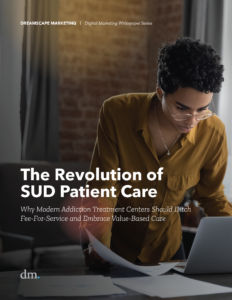 Ever wish you could pay for the results of a service instead of blindly paying for it? If you hire someone to paint a room, you usually have to pay them a rate based on the area they’re covering, not the quality of the work, right?
Ever wish you could pay for the results of a service instead of blindly paying for it? If you hire someone to paint a room, you usually have to pay them a rate based on the area they’re covering, not the quality of the work, right?
This means you’ll pay the same amount for a pristine paint job as you would for one that resulted in splatters on the floor and streaks on your walls. Does that seem right?
It doesn’t. But this is the way patients pay medical professionals and insurance companies for services rendered. Instead of being incentivized to deliver results, they’re compensated for their time and expertise, no matter the patient’s outcome.
This fee-for-service model, as insurance companies call it, has plagued healthcare for decades. Unfortunately, FFS has released doctors and insurance companies from the responsibility of providing personalized, quality care.
This is especially distressing in the context of treating substance use disorders, which has rightfully been labeled a modern-day epidemic. From April 2020 to April 2021, more than 100,000 people succumbed to overdoses, the highest number of drug-related deaths ever recorded in one year.
But given the modern medical innovations and treatment strategies available today, how can this be? Other corporations definitely deserve blame as well, but the FFS model of medicine certainly hasn’t been a part of the solution—or even helped the situation.
There is an alternative to this archaic medical model, and the initial research about this newer system’s efficacy is encouraging. Could value-based care be the solution?






